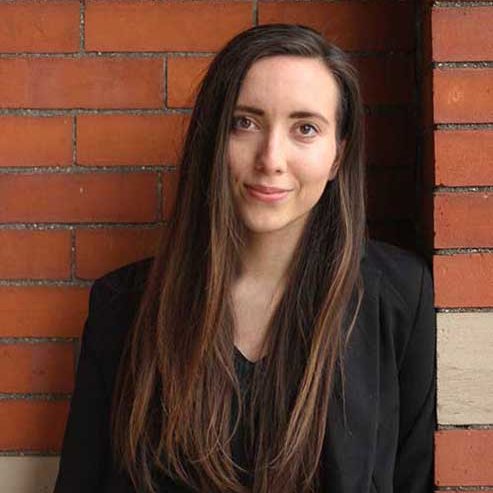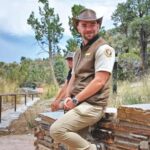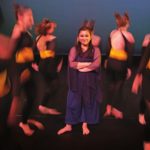
I.S. research enhances understanding of birth workers in the COVID-19 era

With parents who both attended The College of Wooster, Hannah Lane-Davies ’21 never intended to study at the College, but the “welcoming sense of community on campus” inspired her to change her mind. “Wooster has provided mentorship and learning opportunities that emphasize the self-directed learning style I learn well with and continued to challenge me in new ways,” she said. “I know it has been a good fit for me because I feel that I have grown as a writer and learner but also as a community member and friend.” Lane-Davies drew on her 2019 APEX fellowship experience and Wooster coursework to develop her Independent Study project for which she interviewed doulas, midwives, and community health workers. Using a “reproductive justice framework,” she combined the interviews with existing literature. “My project focuses on the ways birth workers navigate the intersections of their personal and professional commitments to Birth Justice during a pivotal moment in antiracist organizing and the stratified impacts of the COVID-19 pandemic in the United States,” she explained.
Majors: Women’s, gender, and sexuality studies and anthropology
Advisor: Christa Craven, dean for faculty development, professor of women’s, gender, and sexuality studies and sociology and anthropology
I.S. Title: “Birth Work, Reproductive Justice, and Communities of Care”
“This project has demonstrated that an intersectional lens can help us think more inclusively about the experiences of working parents and how we support birthing families.”
—Hannah Lane-Davies ’21
What inspired you to choose this project?
“I’ve always felt passionately about supporting families, but my 2019 APEX fellowship as part of an epidemiological team focused on reducing infant mortality introduced me to the world of birth equity and the movement towards Birth Justice. While doing research as part of my fellowship, I realized I wanted to take what I was learning and focus more specifically on those providing support to birthing families—so that experience really planted the seed for this project.”
In what ways did your time at Wooster prepare you to do this research?
“My coursework in anthropology and women’s, gender, & sexuality studies classes—particularly courses like Histories of Feminist Thought, Physical Anthropology, Contemporary Anthropological Theory, and Queer Lives—provided me with the theoretical and historical frameworks as well as the research and writing skills I needed to help me feel successful in this project. Even more so, the support I’ve received at the Writing Center and opportunities to work with and learn alongside faculty members like Dr. Christa Craven, Dr. Natasha Bissonauth, and Dr. Olivia Navarro-Farr as a student, research assistant, and TA have prepared me for I.S.”
What’s significant about your research and the conclusions you’ve been able to draw?
“Focusing on the experiences of people caring for birthing families and themselves during the pandemic and the era of Black Lives Matter acknowledges that the pandemic is an environmental justice, economic justice, criminal justice, food justice, racial justice and Birth Justice issue. This project demonstrated that an intersectional lens can help us think more inclusively about the experiences of working parents and how we support birthing families. My I.S. also affirms that Reproductive Justice is an essential theoretical and activist framework for reducing racial disparities in infant and maternal health outcomes.”
What’s next for you after graduation?
“After spending the last year focused on research related to birth support, I’m looking into applying to a doula certification program focused on culturally competent and anti-racist support for families and engaging in more work related to infant and paternal health post-graduation.”
Posted in Independent Study on April 28, 2021.
Related Posts
Related Areas of Study
Women's, Gender, & Sexuality Studies
Champion the experiences of women as they intersect with race, nation, ability, class, religion, and other axes of difference
Major MinorAnthropology
Use problem-solving and research skills to explore and understand communities and cultures in every part of the world.
Major Minor

